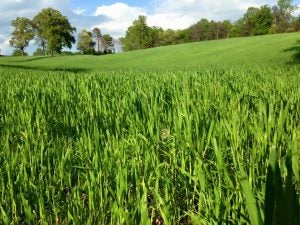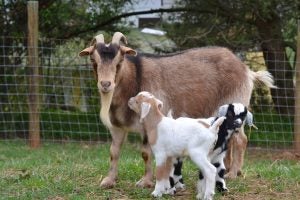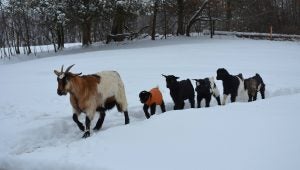I was probably somewhat unique for my generation in that heading into college I knew exactly what I wanted to do upon graduation. I enrolled at Boston College and by sophomore year had declared in both accounting and finance and by junior year had decided to pursue a career in the audit/tax field.
Fast forward a few years, I had found great success within my small division of PricewaterhouseCoopers and a solid career trajectory. Despite my true enjoyment with the challenge of tax consulting and compliance, I began to feel a certain dissonance. Although it manifested itself in frustrations over a seemingly thankless low pay and annoyance at the political nature of a large office environment, I’ve come to believe it was something much bigger.
My now wife at the time was enrolled in her own post graduate studies hundreds of miles away, and between distance and the ever expanding hourly and energy demand at work planning for a future seemed distant if even possible. One pivotal moment that sticks out in my head was a home we looked at in Southeast Massachusetts. It was a fascinating larger late 1700s house that was on a 10 acres of land — a kingdom for a city dweller like myself! It was advertised as a tear down and “priced to sell,” and visions of restoration and a small farm danced in my head. Sitting down and looking at numbers it became readily apparent that there was no way I could afford it. What’s more, it didn’t seem as if things would change anytime soon. I believe it was that time at which a concept I have repeated many times really struck me — “Am I working to live or living to work?” Working in the financial district of Boston had $35/day parking, living near Boston had $1,400 studio apartments while still enjoying an hour of traffic each morning to go 10 miles. The more time I dedicated to work, the more I earned, the less time I had to pursue my own finances, goals, hobbies, and, most importantly, the more money I seemed to spend. It truly felt like the metaphorical hamster wheel.
The problem wasn’t the firm; it was the fact that corporate jobs were simply not conducive to what I truly wanted to achieve. I knew that I needed a different track, one that allowed me to reap the fruits of my labor, feel the burn of failures and allowed for flexibility in order to reorient toward the “work to live” paradigm.

My wife had begun to prepare for the final leg in her own professional training. My timely detachment from Boston allowed her to shoot for more cost effective states for her to practice and us to live in. In a whirlwind she matched to rural Virginia, we found an old log farmhouse for sale, got married, and moved south — all in the course of a few months.
Pouring all of my savings into the purchase of a house — pennies compared to costs in New England — we were able to start with a home owned free and clear. Over the last couple years we have adopted a cautious approach, partly due to inexperience and partly due to a now much-reduced single income my wife earned. The house turned into a much larger project than anticipated, but I have managed to do most everything myself, learning useful, tangible and reproducible building skills.

We gradually purchased surrounding acreage, re-creating most of the original 1860s farm parcel. With the land, and armed with my accounting & tax background we formed Seven Freedoms Farm LLC, currently at 50 acres with plans to add more this year. With standing annual hay crops of fescue as well as seasonal sudex and winter rye/wheat, we began by experimenting with local poultry and egg sales before expanding into meat goats, specifically parasite resistant purebred myotonics. We are truly excited about the positioning and direction the farm has taken and believe that there is strong scalable opportunities to be had.
Though I will be lucky if we crest 15 percent (which is actually an exciting milestone) of my original take-home pay this year, the radical shift in employment has been offset by dramatic, but mostly painless, reduction in fixed and variable life expenses related to where we reside as well as having more time to live better and more efficiently. I have been blessed to have a wife who has been supportive of what could have a much rockier transition than it turned out to be, however we find ourselves in a great position to start a family, grow our business and continue to “work only to live” rather than only “living only to work.”



